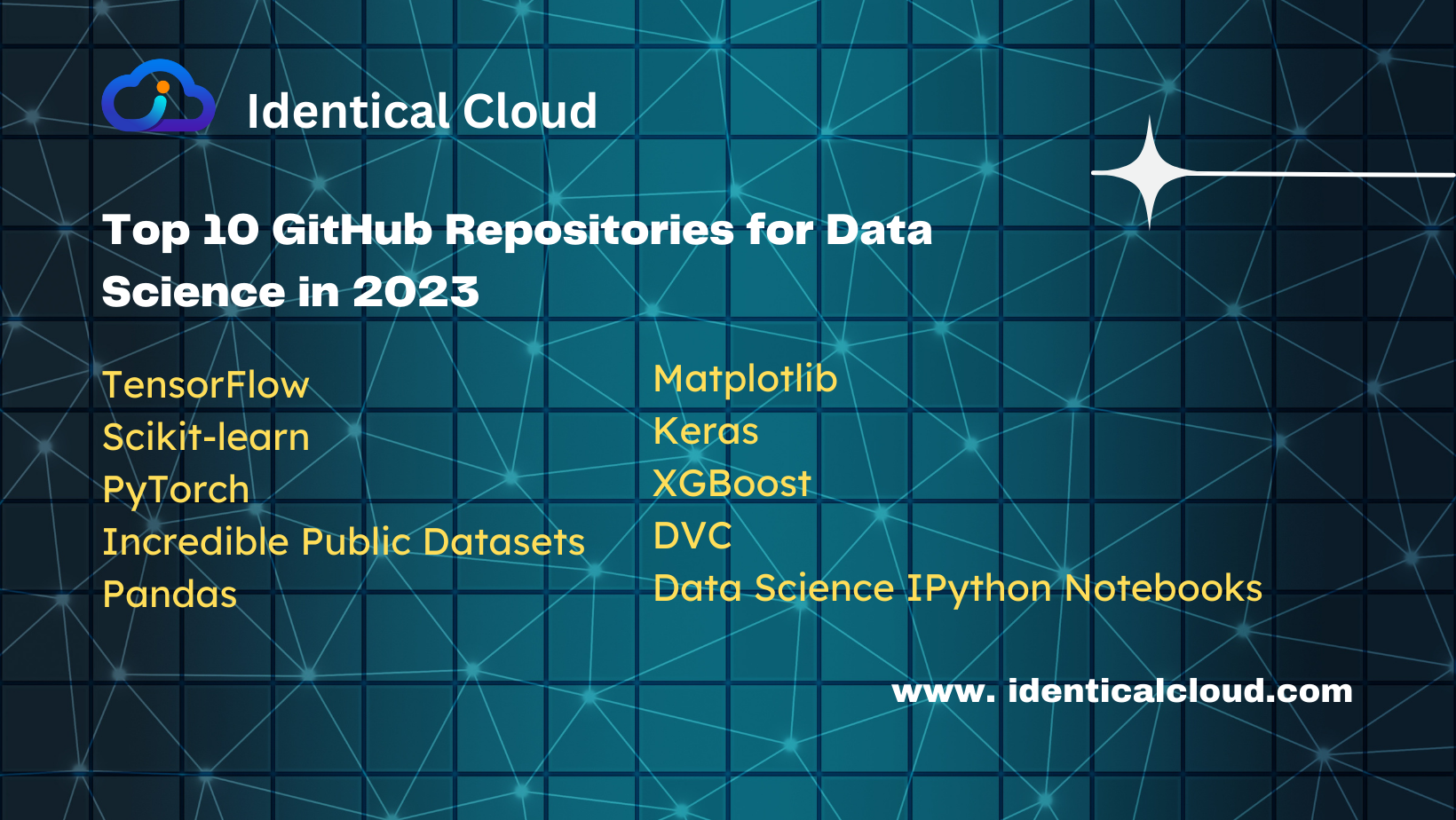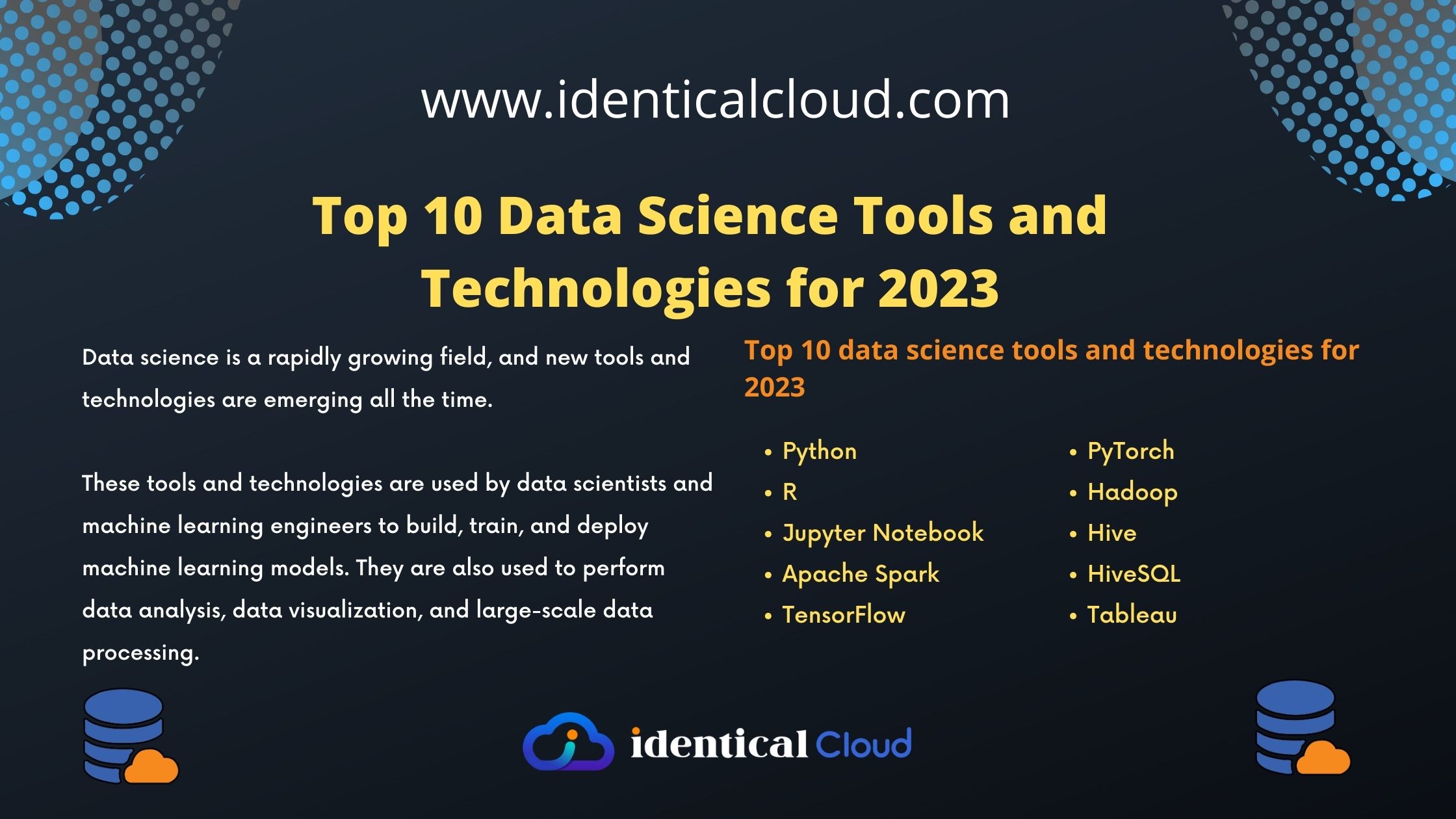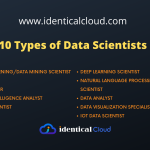
Top 10 GitHub Repositories for Data Science in 2023
Top 10 GitHub Repositories for Data Science in 2023
GitHub is a popular code hosting platform that is home to a wealth of open-source repositories for data science. These repositories offer a wide range of resources, including datasets, code libraries, and tutorials.
In this blog post, we will discuss the top 10 GitHub repositories for data science in 2023. These repositories are a great resource for anyone who is interested in learning about data science or who is looking for tools and resources to use in their data science projects.
What is GitHub?
GitHub is a code hosting platform for version control and collaboration. It is a web-based hosting service that allows developers to store and manage their code. GitHub also provides a number of features that make it easy for developers to collaborate on projects, such as issue tracking, pull requests, and code reviews.
GitHub is a popular platform for open-source software development. Many popular open-source projects, such as the Linux kernel and the Ruby on Rails framework, are hosted on GitHub. GitHub is also used by many businesses to manage their code.
Here are some of the benefits of using GitHub:
- Version control: GitHub allows you to track changes to your code over time. This makes it easy to revert to previous versions of your code or to see what changes have been made since a particular point in time.
- Collaboration: GitHub makes it easy to collaborate on projects with other developers. You can share your code with others, and you can review and comment on each other’s code.
- Issue tracking: GitHub allows you to track bugs and issues in your projects. This makes it easy to keep track of what needs to be fixed and to prioritize your work.
- Pull requests: Pull requests allow you to propose changes to a project. This is a great way to get feedback on your code and to get your changes merged into the main project.
- Code reviews: Code reviews allow you to have your code reviewed by other developers. This is a great way to improve the quality of your code and to catch any potential problems.
List of Top 10 GitHub Repositories for Data Science in 2023
TensorFlow
TensorFlow is a popular open-source library for machine learning and deep learning developed by Google. It is a powerful tool that can be used for a variety of data science tasks, such as image classification, natural language processing, and fraud detection.
Scikit-learn
Scikit-learn is a widely used Python library that provides a range of machine-learning algorithms and utilities. It is a great choice for beginners who are looking for a comprehensive and easy-to-use machine learning library.
PyTorch
PyTorch is another prominent deep-learning framework that has gained significant traction in the data science community. It is similar to TensorFlow in terms of its capabilities, but it has a different programming style that some users prefer.
Incredible Public Datasets
This repository contains a collection of high-quality public datasets that can be used for data science projects. The datasets are organized by topic, making it easy to find the ones that are relevant to your needs.
Pandas
Pandas is a Python library for data analysis. It provides a powerful and easy-to-use interface for working with tabular data. Pandas is a must-have tool for any data scientist who needs to manipulate and analyze data.
Matplotlib
Matplotlib is a Python library for plotting data. It provides a wide range of plotting options, making it easy to create beautiful and informative visualizations. Matplotlib is a valuable tool for any data scientist who needs to communicate their findings to others.
Keras
Keras is an API for building deep learning models. It is built on top of TensorFlow and makes it easy to create and train deep learning models. Keras is a popular choice for beginners who are looking to get started with deep learning.
XGBoost
XGBoost is a popular machine learning library for gradient boosting. It is a powerful tool that can be used for a variety of data science tasks, such as classification, regression, and ranking.
DVC
DVC is a data version control system. It allows you to track the changes to your data and to reproduce your results. DVC is a valuable tool for any data scientist who wants to ensure the reproducibility of their work.
Data Science IPython Notebooks
This repository contains a collection of IPython notebooks that demonstrate various data science techniques. The notebooks are well-documented and easy to follow, making them a great resource for learning about data science.
How to use GitHub for data science?
GitHub can be used for data science in a number of ways. Here are a few examples:
- Storing and versioning code: GitHub can be used to store and version your code, making it easy to track changes and revert to previous versions. This is especially important for data science projects, as you may be working with large datasets and complex algorithms.
- Collaborating on projects: GitHub makes it easy to collaborate on data science projects with other people. You can share your code with others, and you can review and comment on each other’s code. This is a great way to get feedback on your work and to learn from others.
- Hosting data: GitHub can be used to host data files, making them accessible to others. This is a great way to share data with others or to use data that is hosted on GitHub.
- Hosting Jupyter notebooks: GitHub can be used to host Jupyter notebooks, which are a great way to document your data science work. Jupyter notebooks allow you to combine code, text, and visualizations in a single document. This makes it easy to share your work with others and to reproduce your results.
These are just a few of the many great GitHub repositories for data science. With so many resources available, there is no excuse not to get started with data science today.
As the data science field continues to evolve, these top 10 GitHub repositories epitomize the collaborative spirit and innovation that define the data science community. Navigating this repository-rich landscape provides data scientists with the tools they need to push boundaries, uncover insights, and drive transformative change. With each commit, pull request, and shared resource, the GitHub repositories shape the data science landscape, empowering professionals to make data-driven decisions and embark on new frontiers of discovery.









